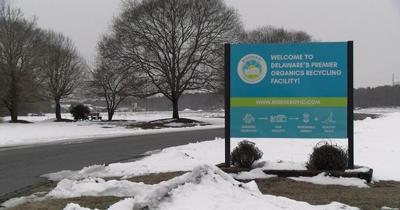SUSSEX COUNTY, Del. -- The Environmental Protection Agency and the Delaware Department of Natural Resources entered into an agreement acknowledging DNREC's lack of inclusivity and discrimination against certain ethnic groups in its permitting processes.
According to a DNREC spokesperson, the agreement is an Informal Resolution Agreement stemming from a civil rights complaint made by several organizations against DNREC in 2022 and accepted by the EPA in 2023.
A press release sent out by the Socially Responsible Agriculture Project on Wednesday, says the organizations allege DNREC and Sussex County failed to protect the civil rights of the predominantly Haitian, Latinx, Black, and limited English proficient populations living near the Bioenergy Development Company poultry waste facility in Seaford.
This comes after then DNREC Secretary Shawn Garvin approved five permits in 2023 supporting the facility's expansion without providing adequate information and opportunities for public participation during the permit review process for the proposed expansion.
Once BDC’s expanded Seaford operations reach full capacity, it will process an expected 250,000 tons of organic wastes from the poultry industry annually into stable compost which can be used to replace chemical fertilizers, along with the biogas and renewable natural gas.
As for the agreement and complaint, DNREC says it took several steps to improve outreach and to strengthen public engagement prior to the complaint. Those steps include:
- Hired DNREC and the state's first Environmental Justice Coordinator
- Developed an environmental justice screening tool
- Adopted an Environmental Justice Compliance Policy
- Developed a Community Engagement Outline
- Created internal and external Environmental Justice web pages
- Initiated a Community Assets Campaign
"Those initiatives are not new or part of the agreement itself, but we acknowledged by the EPA as measures DNREC tool independently," says DNREC Chief Communications Officer Nikki Lavoie. "DNREC has made great strides in improving and growing community engagement, but we know we must continue to find ways to ensure all voices are heard and valued."
WBOC spoke with Charito Calvachi-Mateyko of the ACLU of Delaware and the Delaware Poor People's Campaign and Maria Payan of the Sussex Health and Environmental Network.
"DNREC failed miserably," says Calvachi-Mateyko. "They need to go where these people are. They need to go to the churches. That's where people organize. They are there."
"The people did not get a fair hearing," says Payan. "We would have like to have seen them get a new hearing to meaningfully participate. That is what the state laws require."



